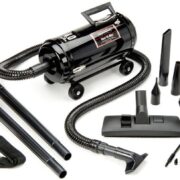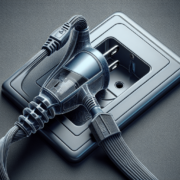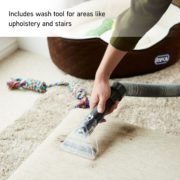In the world of vacuum cleaners, there are two types of filters that reign supreme: HEPA filters and standard filters. HEPA, also known as High-Efficiency Particulate Air, filters are designed to trap tiny particles and allergens, ensuring cleaner air in your home. On the other hand, standard filters are more budget-friendly options that may not capture as many particles but still get the job done. So, which one should you choose? Let’s explore the differences between these filters to help you make an informed decision for cleaner, fresher air in your home.
HEPA Filters
What is a HEPA Filter?
A HEPA (High Efficiency Particulate Air) filter is a type of filter commonly used in vacuum cleaners and air purifiers. It is designed to capture microscopic particles and allergens, ensuring that the air released back into the environment is clean and free from contaminants.
How do HEPA Filters Work?
HEPA filters use a dense mat of fibers that are arranged in a random pattern. These fibers create a labyrinthine pathway for air to pass through, effectively trapping particles as small as 0.3 microns. The particles get trapped by a combination of mechanisms, including interception, impaction, and diffusion.
Benefits of HEPA Filters
HEPA filters offer numerous benefits, which is why they are highly regarded in the filtration industry. Firstly, they have excellent filtration efficiency, capturing up to 99.97% of particles as small as 0.3 microns. This makes them highly effective at removing common allergens like dust mites, pollen, pet dander, and mold spores from the air. Additionally, HEPA filters help improve indoor air quality, reducing the risk of respiratory issues and allergies. They are particularly beneficial for individuals with asthma or other respiratory conditions.
Limitations of HEPA Filters
While HEPA filters are highly effective at capturing small particles, they may not be as effective against gases, odors, or volatile organic compounds (VOCs). These types of pollutants may require additional filtration methods, such as activated carbon filters, to remove them effectively. Furthermore, HEPA filters need to be regularly maintained and replaced to ensure optimal performance. Failure to do so can lead to reduced air filtration efficiency and potentially damage the vacuum cleaner or air purifier.
Standard Filters
What are Standard Filters?
Standard filters, also known as conventional filters, are the more traditional type of filters used in vacuum cleaners. They are typically made of thin layers of material that work to physically trap dust and debris as air passes through the vacuum cleaner.
How do Standard Filters Work?
Standard filters work by using a combination of physical barriers, such as fine mesh screens or porous materials, to capture larger particles. These filters are not as effective as HEPA filters when it comes to capturing smaller particles of allergens or pollutants, but they are still able to improve the overall air quality by collecting visible dust and debris.
Benefits of Standard Filters
Standard filters are often more affordable than HEPA filters, making them a popular choice for those on a budget. They are also generally less restrictive on airflow, meaning they can provide better suction power during vacuuming. Additionally, standard filters are easier to clean and may not require as frequent replacement as HEPA filters.
Limitations of Standard Filters
The main limitation of standard filters is their lower filtration efficiency compared to HEPA filters. They are not designed to capture very small particles, so they may not be as effective in reducing allergens or improving indoor air quality. Additionally, standard filters may not be suitable for individuals with respiratory conditions or severe allergies, as they may not effectively remove finer particles that can trigger symptoms.
Filtration Efficiency
HEPA Filter Efficiency
HEPA filters are renowned for their high filtration efficiency. As mentioned earlier, they can capture up to 99.97% of particles as small as 0.3 microns. This level of filtration makes them incredibly efficient at removing common allergens and improving indoor air quality.
Standard Filter Efficiency
Standard filters, on the other hand, have a lower filtration efficiency than HEPA filters. While they can effectively capture larger particles, they may only remove a portion of the smaller particles present in the air. Their filtration efficiency can vary depending on the specific type and quality of the filter.
Comparison of Filtration Efficiency
When comparing filtration efficiency, HEPA filters clearly outperform standard filters. If your main concern is to eliminate allergens and ensure the cleanest air possible, choosing a vacuum cleaner or air purifier with a HEPA filter is highly recommended. However, for general cleaning purposes and capturing larger particles, standard filters can still provide an adequate level of filtration.
Particle Retention
HEPA Filter Particle Retention
HEPA filters excel in particle retention, especially when it comes to smaller particles. Their densely packed fibers effectively trap particles as small as 0.3 microns, preventing them from being released back into the air. This level of particle retention is crucial for individuals with allergies or respiratory conditions who are particularly sensitive to airborne pollutants.
Standard Filter Particle Retention
Standard filters can retain particles to some extent, but they are not as effective as HEPA filters in retaining smaller particles. Larger particles are more likely to be trapped, while smaller particles may pass through the filter and be released back into the environment.
Comparison of Particle Retention
Overall, HEPA filters offer significantly better particle retention than standard filters. This makes them a more suitable option for individuals with specific health concerns or those who prioritize the highest level of air purification.
Allergen Capture
HEPA Filter Allergen Capture
HEPA filters are highly efficient at capturing common allergens that can trigger respiratory issues. These filters can effectively trap dust mites, pollen, pet dander, mold spores, and other microscopic particles that can cause allergies or worsen existing conditions. By removing these allergens from the air, HEPA filters help create a healthier living environment.
Standard Filter Allergen Capture
Standard filters can also capture larger allergens, such as pet hair or visible dust. However, they are not designed to capture smaller allergens like pollen or mold spores. This means that standard filters may not be as effective at reducing allergy symptoms or improving indoor air quality for individuals with sensitivities.
Comparison of Allergen Capture
When it comes to allergen capture, HEPA filters are the clear winner. Their ability to capture even the tiniest allergens makes them the preferred choice for those who suffer from allergies or asthma.
Maintenance and Replacement
Maintenance of HEPA Filters
Proper maintenance is essential to ensure the longevity and optimal performance of HEPA filters. Regular cleaning is recommended to remove dust and debris that may accumulate on the surface of the filter. Many HEPA filters are washable, allowing for easy cleaning. However, it is crucial to follow the manufacturer’s instructions to avoid damaging the filter. Additionally, HEPA filters should be replaced according to the manufacturer’s recommendations to maintain their effectiveness.
Maintenance of Standard Filters
Standard filters are generally easier to maintain than HEPA filters. They can often be cleaned by tapping or gently brushing off the accumulated dust. Some standard filters may also be washable. However, it is important to remember that not all standard filters are washable, so it is crucial to check the specific instructions provided by the manufacturer. Like HEPA filters, standard filters should be replaced at recommended intervals to maintain performance.
Replacement Frequency for HEPA Filters
The frequency of replacing HEPA filters may depend on various factors, such as the amount of particulate matter in the environment and the usage of the vacuum cleaner or air purifier. As a general guideline, HEPA filters should be replaced every 6 to 12 months, although some models may require more frequent replacement.
Replacement Frequency for Standard Filters
Standard filters typically have a longer lifespan than HEPA filters. They may only need to be replaced every 3 to 6 months, depending on usage and accumulation of debris.
Cost
Cost of HEPA Filters
HEPA filters are generally more expensive than standard filters due to their higher filtration efficiency and advanced technology. The cost of a HEPA filter can range from $10 to $50, depending on the brand, model, and size of the filter. However, it is important to consider the long-term benefits and improved air quality that HEPA filters provide.
Cost of Standard Filters
Standard filters are generally more affordable than HEPA filters. They can range in price from $5 to $20, depending on the type and brand. Their lower cost makes them a suitable option for those on a tight budget or for vacuum cleaners that are used less frequently.
Comparison of Costs
While HEPA filters may have a higher upfront cost, they offer superior filtration performance and better allergen capture. Standard filters may have a lower initial cost, but they may not provide the same level of air purification and particle retention as HEPA filters. Ultimately, the choice between the two will depend on your specific needs and priorities.
Suitability
HEPA Filters: Ideal Usage
HEPA filters are ideal for individuals who have allergies, asthma, or other respiratory conditions. They are also highly recommended for households with pets, as they can effectively capture pet dander and hair. HEPA filters are particularly beneficial in environments with poor air quality or high levels of allergens.
Standard Filters: Ideal Usage
Standard filters are suitable for general cleaning purposes and for capturing larger particles. They can be used in households where there are no specific respiratory concerns or allergies. Standard filters can effectively trap visible dust and debris, making them a practical choice for routine cleaning tasks.
Choosing the Right Filter for Your Needs
Choosing the right filter depends on your specific requirements. If you prioritize high filtration efficiency, superior allergen capture, and improved indoor air quality, then a HEPA filter is the best choice. However, if you are looking for a more budget-friendly option and are primarily concerned with general cleaning, a standard filter may suffice. Consider your personal circumstances and health concerns when selecting a filter for your vacuum cleaner or air purifier.
Environmental Impact
HEPA Filters and Environmental Impact
HEPA filters, like any other type of filter, have an environmental impact. The production and disposal of HEPA filters contribute to waste generation. However, some HEPA filters are washable and reusable, reducing the need for frequent replacements. Additionally, choosing energy-efficient vacuum cleaners or air purifiers that use HEPA filters can help minimize environmental impact by reducing energy consumption.
Standard Filters and Environmental Impact
Standard filters, similarly to HEPA filters, have an environmental impact. The production and disposal of these filters also contribute to waste generation. However, standard filters tend to have a longer lifespan, resulting in less frequent replacements and potentially reducing their impact on the environment.
Comparison of Environmental Impact
Both HEPA filters and standard filters have environmental impacts. However, some brands offer eco-friendly options for both types of filters, such as using recyclable materials or promoting sustainable manufacturing practices. When selecting a filter, consider brands that prioritize environmental stewardship and sustainability.
Conclusion
In the choice between HEPA filters and standard filters, it is important to consider your specific needs and priorities. HEPA filters offer superior filtration efficiency, allergen capture, and particle retention, making them ideal for individuals with allergies or respiratory conditions. However, they come with a higher cost and may require more frequent maintenance and replacement. On the other hand, standard filters provide adequate filtration for general cleaning purposes and come at a more affordable price. Ultimately, the decision should be based on your individual circumstances, budget, and desired level of air purification. Regardless of the filter type you choose, regular maintenance and proper replacement will ensure optimal performance and cleaner air in your home or workspace.



